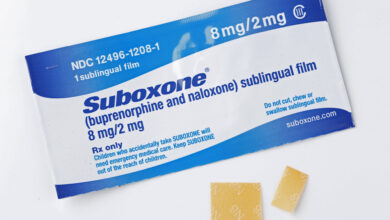Brominated Vegetable Oil in Sun Drop Soda: What Consumers Need to Know
Brominated Vegetable Oil in Sun Drop Soda: What Consumers Need to Know
As consumers become more conscious of what they put in their bodies, understanding the ingredients in popular beverages is more important than ever. One ingredient that has raised significant concern in products like Sun Drop soda is brominated vegetable oil (BVO). If you’re wondering why it’s included in your soda, and whether it could pose a health risk, here’s what you need to know from both a legal and health standpoint. If you believe that a product containing BVO has harmed you or misled you, please fill out the form on this page or call us. You can consult a consumer class action attorney and possibly take legal action which can lead to better practices in the food and beverage industry and potentially compensate affected consumers.
What is Brominated Vegetable Oil (BVO)?
Brominated vegetable oil is a chemical additive created by bonding bromine, a toxic substance, with vegetable oil, typically derived from soybeans or corn. It’s commonly used as an emulsifier in beverages, particularly those with citrus flavors like Sun Drop soda. The purpose of BVO is to help the citrus oils mix evenly with the rest of the liquid, preventing separation and giving the drink a consistent texture and appearance.
In addition to Sun Drop, BVO is found in several other citrus-flavored sodas, energy drinks, and even sports drinks. While it performs a functional role in ensuring product consistency, the presence of BVO has been a source of concern for many consumers, particularly those who are wary of chemical additives in their food and drink.
Why is BVO a Concern?
Brominated vegetable oil has become controversial due to its potential health risks. While the U.S. Food and Drug Administration (FDA) has classified BVO as “generally recognized as safe” (GRAS) for use in certain quantities, there are growing concerns about the long-term effects of consuming this chemical, particularly in large quantities over time.
The primary concern stems from the bromine in BVO, which can accumulate in the body. Some studies have linked excessive bromine exposure to health issues such as thyroid problems, neurological impairments, and even developmental concerns. Although the FDA allows its use in limited quantities, the presence of BVO in food and beverages has raised questions about its safety.
Additionally, there is a risk of developing “bromism,” a condition caused by an excess of bromine in the body. Symptoms of bromism include headaches, memory loss, confusion, and even fatigue or skin rashes. While these effects are rare and usually occur after consuming large amounts of BVO over time, they are still a cause for concern for many consumers.
The Legal Landscape: Consumer Rights and Action
As a consumer, you have the right to know what’s in the products you purchase. When an ingredient like BVO is used in food and drink products, especially when its safety is questionable, it can be seen as deceptive or misleading advertising if consumers are not adequately informed of the risks.
The fact that BVO is still permitted in U.S. food products, despite being banned in several other countries, highlights the ongoing debate around food safety standards and consumer rights. If you’re concerned about the potential health effects of BVO, it’s important to know that you may have legal recourse.
In some cases, consumers have filed class action lawsuits against companies that use controversial ingredients without proper disclosure or fail to meet safety standards. If a product like Sun Drop contains BVO and you believe it has caused harm, you may be eligible to join or initiate a class action lawsuit. Such lawsuits can hold manufacturers accountable for their choices and push for greater transparency in labeling.
What Can Consumers Do?
If you’re concerned about BVO in Sun Drop soda or other products, you can take several steps:
- Check Ingredient Labels: Always read the ingredient list on beverage bottles. If BVO is listed, it means the product contains this emulsifier.
- Seek Alternatives: Many soda brands have removed BVO in response to consumer demand. Look for products that use safer emulsifiers or no emulsifiers at all.
- Stay Informed: Be proactive about understanding the potential risks of chemical additives in your food and drinks. Research ingredients and be aware of any changes in regulations or public health studies.
- Know Your Rights: If you believe that a product containing BVO has harmed you or misled you, consider consulting a consumer class action attorney. Legal action can lead to better practices in the food and beverage industry and potentially compensation for affected consumers.
Conclusion
Brominated vegetable oil in Sun Drop soda may serve a functional purpose, but its potential health risks have made it a controversial ingredient. Consumers deserve to know what’s in their food and drink, and if you believe you’ve been misled, you have the right to take action. Whether you choose to limit your consumption or seek legal recourse, staying informed about ingredients like BVO empowers you to make better choices for your health and well-being.


